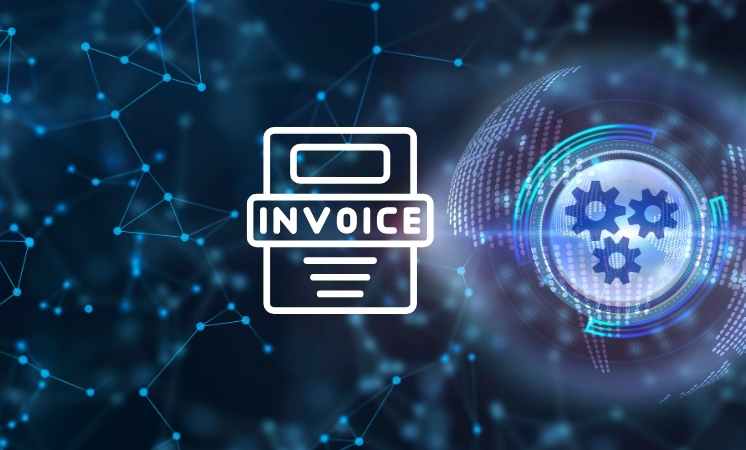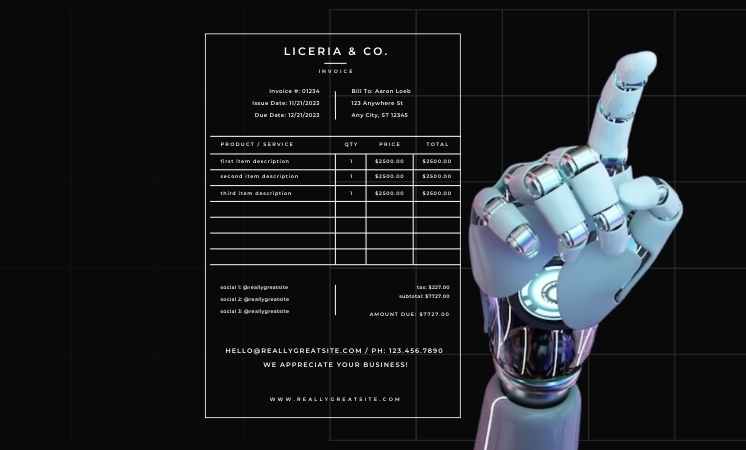
As retail businesses rely more and more on automation to operate their operations, Accounts Payable is one area that may require optimization. Many businesses handle the majority of laborious tasks, yet even the most sophisticated ERP systems struggle to manage the complex and changeable nature of vendor invoices. By embracing this issue, supply chain managers may leverage AI-powered vendor invoice management to enhance business processes and drive growth.
This trend is supported by data, which predicts that the worldwide AI-in-retail market will reach $24 billion by 2028 and more than $45 billion by 2032.
In this article, we'll discuss how companies that have already automated their ERP systems can use AI-driven solutions to reduce costs, expedite accounts payable, and enhance accuracy.
The Current Challenge of Supply Chains in Retail
In retail supply chains, especially those that handle large numbers of goods, efficient invoicing management is essential. Retailers must monitor supplier bills, freight invoices, purchase orders, and invoice payments closely. To reduce the burden of manual data entry, increase accuracy, and expedite processes, the majority have embraced automation. This adoption often centers around ERP systems, which are robust and capable but often require additional tools to unlock their full potential.
However, many companies still face challenges like:
- Approval of invoices is delayed
- Missed early payment discounts
- High expenses for processing
- Ineffective management of irregularities or discrepancies
- Difficulty scaling procedures or incorporating new suppliers
Even in automated software settings, these issues still arise, frequently as a result of traditional ERP systems' inability to adapt to the constantly shifting demands of the supply chain. This is where AI-powered enhancements come into play, offering a way to build on the foundation of existing automation.
How AI Resolves Difficulties with Vendor Invoice Management
By removing processing delays and automating data capture and validation, AI-powered solutions have increased the invoice processing speed, lowering the possibility of late payments and vendor problems. AI-driven analytics offer unparalleled visibility and control over the AP automation in real-time. Thus, overall accuracy is increased by drastically lowering human error in data entry and invoice coding through automation.
In addition to this, AI is very good at intelligently and quickly matching receipts, purchase orders, and invoices in three different ways. As a result, businesses can configure these systems to automatically keep thorough audit trails and adhere with compliance standards.
Overall, by using AI to handle repetitive duties, AP workers can concentrate on strategic, value-adding activities that can increase overall productivity.
Benefits of Automated Vendor Invoice Management in Retail Businesses

Vendor Invoice Handling is one area where a lot of retail organizations could significantly improve. This is where automated vendor invoice management enters the picture, providing retail companies with a host of benefits that improve vendor relationships, cut expenses, and increase operational efficiency.
1. Reduced Processing Time:
Entering invoice data manually can cause major delays in the retail industry, as hundreds of invoices are processed every day. By carrying out tedious tasks, automated invoice processing significantly cuts down on the amount of time needed to approve and pay invoices. This speed ensures that invoices are handled in minutes as opposed to days, assisting retailers in effectively meeting payment deadlines.
Additionally, faster processing speeds enable retail organizations to handle large numbers of transactions, particularly during peak times like sales events and holidays.
2. Improved Accuracy:
Using the traditional method to submit invoice data results in inconsistencies, payment delays, and even dissatisfaction from suppliers. Optical Character Recognition (OCR) and other technologies are used in automated invoice processing platforms to reliably extract data from invoices and compare it with purchase orders or receipts.
Retailers benefit from this precision as it provides accurate payments, lowers the possibility of expensive errors, and removes the need for reprocessing, which saves time and money.
3. Cost Savings:
Retail businesses can save cost in a number of ways with automation. By processing invoices more quickly, businesses can avoid late payment costs and potentially take advantage of supplier rebates for early payment. Additionally, fewer expensive repairs, audits, or disputes result from the decrease in errors.
Thus, overall business using invoice process automation reduces operating costs significantly and increases profitability.
4. Enhanced Supplier Relationships:
In the retail industry, keeping good ties with suppliers is essential to a seamless inventory movement. Retailers can pay suppliers precisely and on time using automated invoice processing, which builds trust and collaboration. Better terms and conditions from suppliers, such as pricing or priority delivery of goods, result from on-time payments.
Thus, retailers may build stronger, longer-lasting relationships with their supply chain and manage inventory levels and customer satisfaction by simplifying payments.
5. Better Cash Flow Management:
Real-time visibility into the complete payment lifecycle is made possible by automated invoice systems. Retailers can predict when payments will be made, know exactly where each invoice is in the approval process, and see any possible delays. By making better financial decisions, businesses with this level of control are able to improve cash flow.
With better cash flow management, retailers may prevent problems, ensure funds are accessible for important investments, and sustain seamless operations, particularly during periods of market volatility.
How Retailers Implement AI-Driven Invoice Processing:
Automation in the supply chain is transforming intelligent invoicing in retail! In the retail industry, the benefits in terms of data accuracy, inventory control, and time savings are unparalleled. Let's examine how our retailer uses automation and artificial intelligence in their invoice processing workflows.
- Assessment of Current Systems
- Selecting AI Technology
- Data Capture Automation
- Invoice Matching and Validation
- Automating Approvals Based on Predefined Rules
- Flagging Exceptions for Human Review
- Integration with ERP/Accounting Systems
- Monitoring and Analytics
- Continuous Optimization
- Training and Change Management
Conclusion: Driving Retail Invoices Success with AI

Retailers are tasked with managing piles of invoices each day. Their productivity and efficiency are being negatively impacted by the manual processing of these invoices due to the exponential growth in their commercial activities. Here, a data extraction solution driven by AI promises to transform the extraction and processing of invoice data.
The role of accounts payable teams is being redefined by the most recent developments in invoice management systems. Organizations can decrease expenses, increase accuracy, and devote more time to key goals by implementing this cutting-edge technology.
With Cozentus, customized AI workflows retailers can extract data from unstructured invoices that produce tangible business outcomes. Our method of advanced AI Capture technology lets you create reusable extraction templates on time, extract relevant data, and process it through reliable data pipelines or workflows.
Ready to take your automation to the next level? Read about the benefits of AI in supply chain management for a good start.
Recent Post
Subscribe to our newsletter
Stay updated on latest trends and news in the supply chain and logistics industry
Join our mailing list for monthly updates
Download Reports
AI-Powered Intelligent Document Processing -Your Launchpad to Digital Transformation
Download






